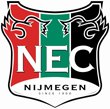League of Ireland Clubs Contribute Towards the Achievement of SDGs
The global appeal of Football means that it has enormous potential as a tool to promote and develop social value and League of Ireland clubs are now effectively using their profile and the work of dedicated employees and volunteers to achieve this aim. As well as impacting on their communities via their social and environmental sustainability actions, League of Ireland clubs can contribute to the State’s efforts towards achieving the sustainable development goals (SDGs) in Ireland. The following three projects were given as examples:
Waterford FC
The work of Waterford FC in promoting equality, social inclusion and creating healthier communities can be seen in some remarkable programmes targeting children and young people with autism which the club has recently started. Waterford FC recently launched their Autism friendly match day experience at the city’s Regional Sports Centre. This is one of several social programmes that the club is rolling out as Waterford FC ramp up their engagement with the local community to provide new services and opportunities for local people.
This fantastic initiative is the result of excellent cooperation between the club, programme volunteers and parents of young children with autism who were keen to provide their kids with an opportunity to regularly see the Blues in action. Children enjoying the recent Dublin derby match at Shamrock Rovers sensory room in Tallaght stadium along with famous Rovers’ mascot, “Hooperman”.

Bohemian FC
In March 2023, Bohemian FC launched its FSR/Community Strategy 2023-2027 with one of its main focuses being climate justice and sustainability. As the impact of climate change become more apparent worldwide, Bohemians Head of Climate Justice and Sustainability, Sean McCabe is leading his Club’s effort to make their contribution to mitigate this impact.
Bohemians are genuinely mindful of the cost-of-living crisis and the impact on their local community. Consequently, in their FSR strategy, they made a “genuine commitment to uplifting people” and improving their lives. That means improving living standards by providing better access to jobs and creating opportunities to access climate solutions that reduce household bills. Acknowledging that climate action is urgent, Seán has outlined how a local professional football club can use its profile and social capital to do its bit for the planet.
“We need to find ways to ensure the wider community is included in the climate transition. People trust football clubs and feel a sense of belonging. If we respect this trust, we can use it to build collective solutions that help to tackle inequality as well as the climate crisis.”
Seán McCabe

Football ‘Bootrooms’
League of Ireland clubs now share a common aim to help combat social isolation among local older people while also inadvertently providing local GPs with an excellent social prescription option for people interested in football who may be experiencing social isolation or milder mental health issues. Several LOI Clubs have started delivering this programme called the Football Bootroom.
Loosely based on the “Men’s Sheds” concept, the football “Bootrooms” are informal social gatherings designed to offer social support, where people can find a meaning and a sense of purpose and belonging. The immediate advantage lies in the common interest shared by “bootroom” participants – a love of football. The Bootrooms offer people a pressure-free environment in which to share stories, showcase their skills, make new friends and connect with their communities. Research has shown this to improve physical and mental health. The Football Bootrooms feature several activities which participants can enjoy or engage in as follows:
The primary offering for participants is the Walking Football programme. A gentler version of the beautiful game aimed at men and women over 50, walking football is simply football without running. Playing the game at a more feasible pace eliminates barriers and provides greater accessibility to the sport. It is designed for participants who wish to continue to engage with football but who may have previously been forced to stop playing the game they love either as a result of age or injury.
Walking Football provides an opportunity to socially engage and connect with peers in the community, effectively combatting social isolation and addressing mental health issues. Walking football has also been shown to provide many other great benefits such as increased fitness, weight loss, muscle growth, stamina and has proved to be hugely beneficial for men battling depression & anxiety.
The next initiative is the Football Memories activities. These are social gatherings of people which provide an opportunity for discussion and activities using football memorabilia, paraphernalia and other media to spark conversations among older people interested in football. Importantly, the programme is dementia friendly.
Resources such as a Football Memory box are used which include Football Legends cards, old jerseys and match programmes to start the discussion while items to stimulate sensory memories such as wintergreen / deep heat used by players to warm muscles pre match can be used to take people back in time to the dressing room banter.


Aris Limassol FC Social, Environmental, and Health Initiatives






